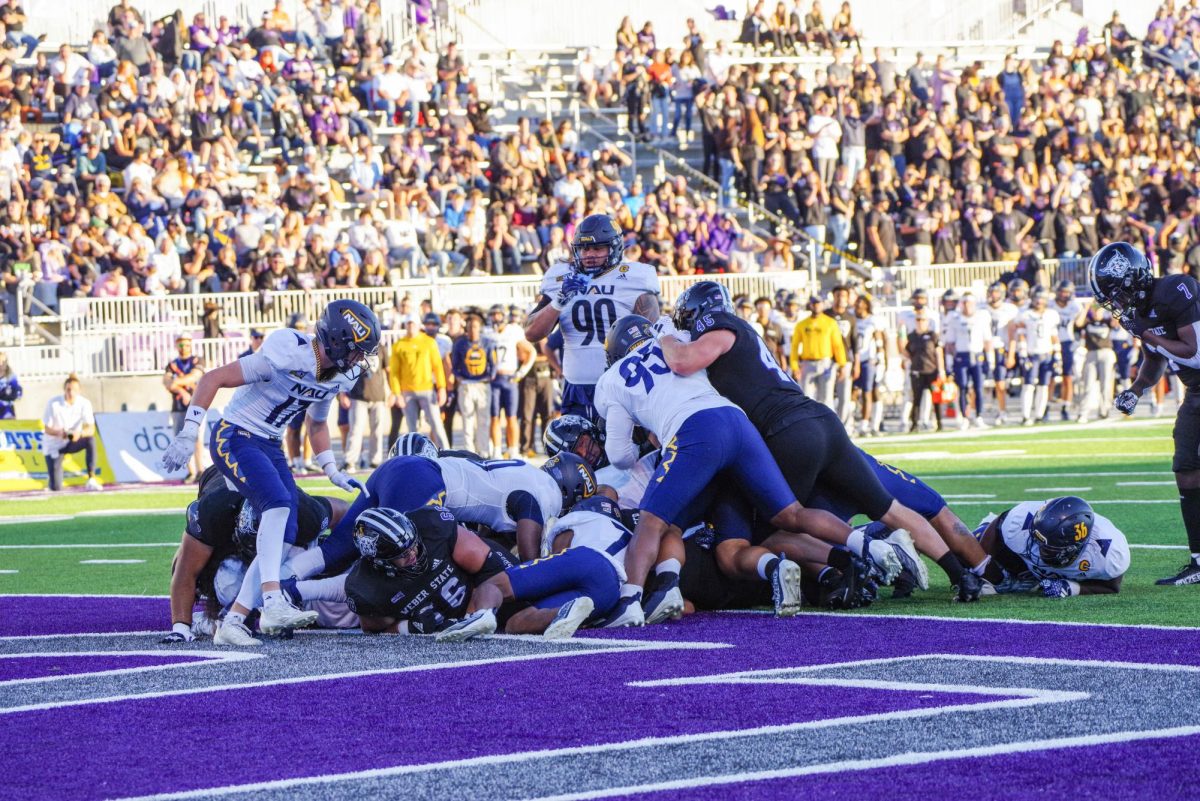The Weber State University Student Senate, together with faculty, organized a forum to discuss academic freedom, freedom of speech on campus and student safety. This forum was held on Nov. 25 in response to the videos posted on YouTube by Michael Moreno in late October.
These videos have raised questions about students recording their professors and what constitutes academic freedom. Moreno stated in an interview that he condemns any violence or safety violations that have occurred because of these videos. However, these videos depict students, and several members of the debate team have been doxxed because of them.

The forum began with a debate on whether or not the forum should be recorded. Adrienne Andrews, the Assistant Vice President for Diversity & Chief Diversity Officer, led the forum as the moderator and asked that no one record any audio or video.
Moreno initially refused to turn off his recorder, stating that because it was a public event, he did not need the explicit consent of those in the room in order to record. Several students then stated they did not consent to be recorded.
At this time, the Student Code, located in the Policies and Procedures Manual, states “Any unauthorized use of electronic or other devices to make an audio or video record of any person while on University premises without his/her prior knowledge, or without his/her effective consent when such a recording is likely to cause injury or distress. This includes, but is not limited to, surreptitiously taking pictures of another person in a gym, locker room, or restroom.”
Many of the students were afraid of the possible repercussions if the audio was uploaded to YouTube or another site and shared with those outside of the room.

A vote was taken among the attendees, and it was decided that no recording would be allowed. Moreno stayed throughout the meeting with the understanding he would not be able to record.
Moreno’s previously uploaded videos were brought up several times, but the faculty present were unable to speak about them because the discussion may have constituted a FERPA violation and further violate the Debate Team’s privacy.
The remaining portion of the forum was spent discussing student safety and academic free speech.
Many of those present from the debate team were concerned about how to keep themselves safe. There has been an increased police presence around campus, specifically in Elizabeth Hall, to allow students to feel more safe.
“If there are safety concerns happening, I condemn them.” Moreno said. “But it’s not my fault.”
Students also raised concerns with how to report incidents and where they should begin. Public Safety Director and Former Chief of WSUPD Dane LeBlanc encouraged students to immediately report any threats to their safety to police, even if they are not sure of how severe it may be.
For issues relating to a student’s right to learn, students can contact the Affirmative Action/Equal Opportunity office. This is available for those who feel that discrimination against an identity is prohibiting their ability to learn and participate in class.
If a student needs to report feeling unsafe or any harassment, but wishes to do so more confidentiality, Paige Davies advocated for students to go to the Safe@Weber advocate Jessica Pleyel by visiting the WSU Women’s Center. While most communication doesn’t have to be reported to any outside sources, if there is a threat of harm to students, the report would be taken to the police.
Alongside the concern for safety, academic freedom has been discussed among faculty in a separate forum. Provost Madonne Miner stated that how a teacher decides to educate their students is largely up to their discretion.
Students that have a problem with class material or the discussions that are taking place during a course can take them to the department chair and express them. In some cases, exceptions or accommodations can be made with the professor.
The forum was largely dominated by students talking about their concerns. As one of the organizers, Nailah Mansa, the African American Student Senator, felt it was successful.
“If we could have a better idea of what the ground rules are so that we could send them out in advance, so people know what they are, that would be helpful,” Mansa said. “I hope that everyone felt that they were able to say what they needed to say.”
The discussion surrounding recording professors and others on campus will continue to happen in meetings with faculty and those in the various levels of the administration, and policy will continue to be reviewed and updated as needed.
Editor’s Note: The initial version of this story stated that the advocate for Safe@Weber was Jessica Miller. The advocate is actually Jessica Pleyel, and the story has been updated to reflect this information.



















